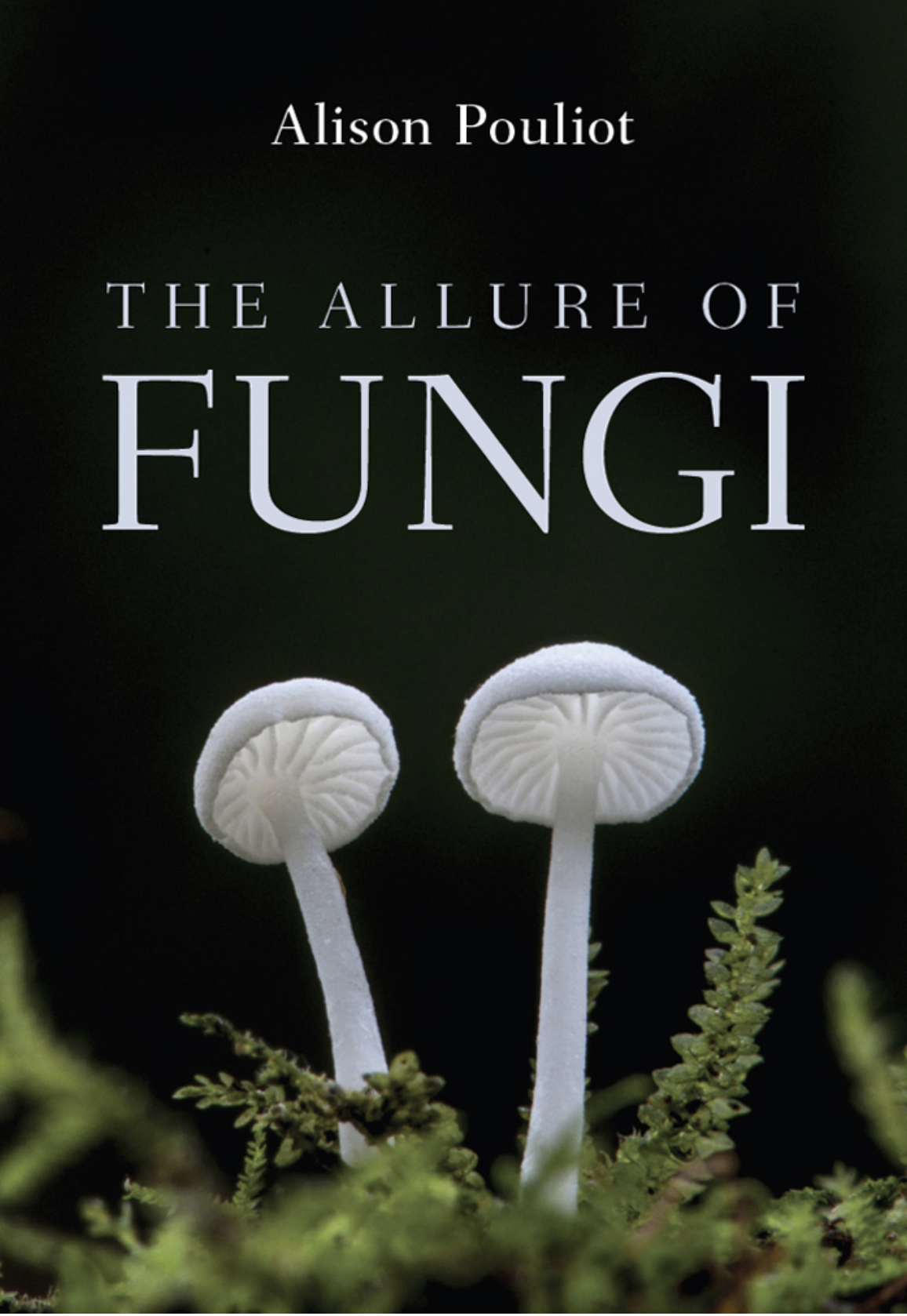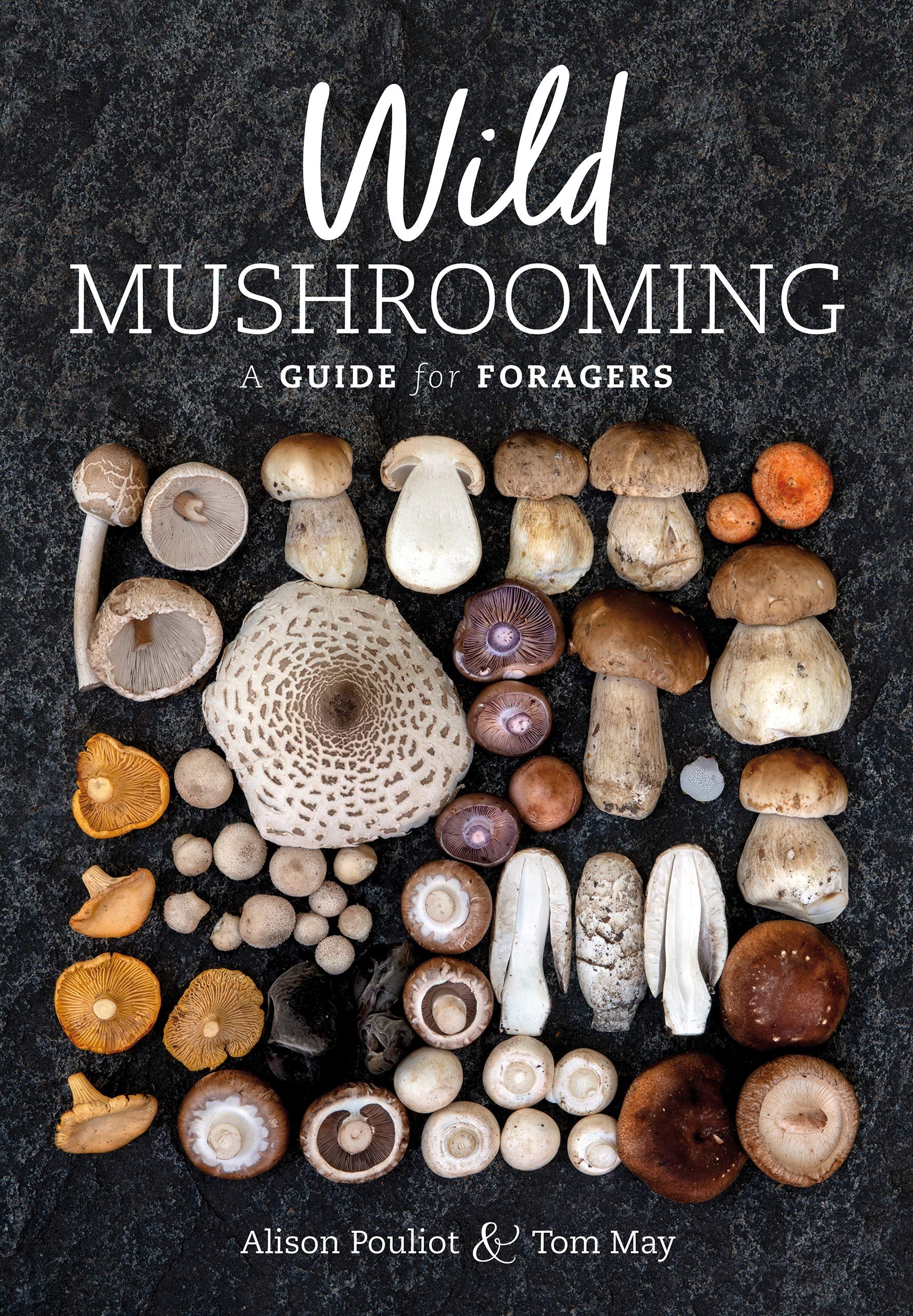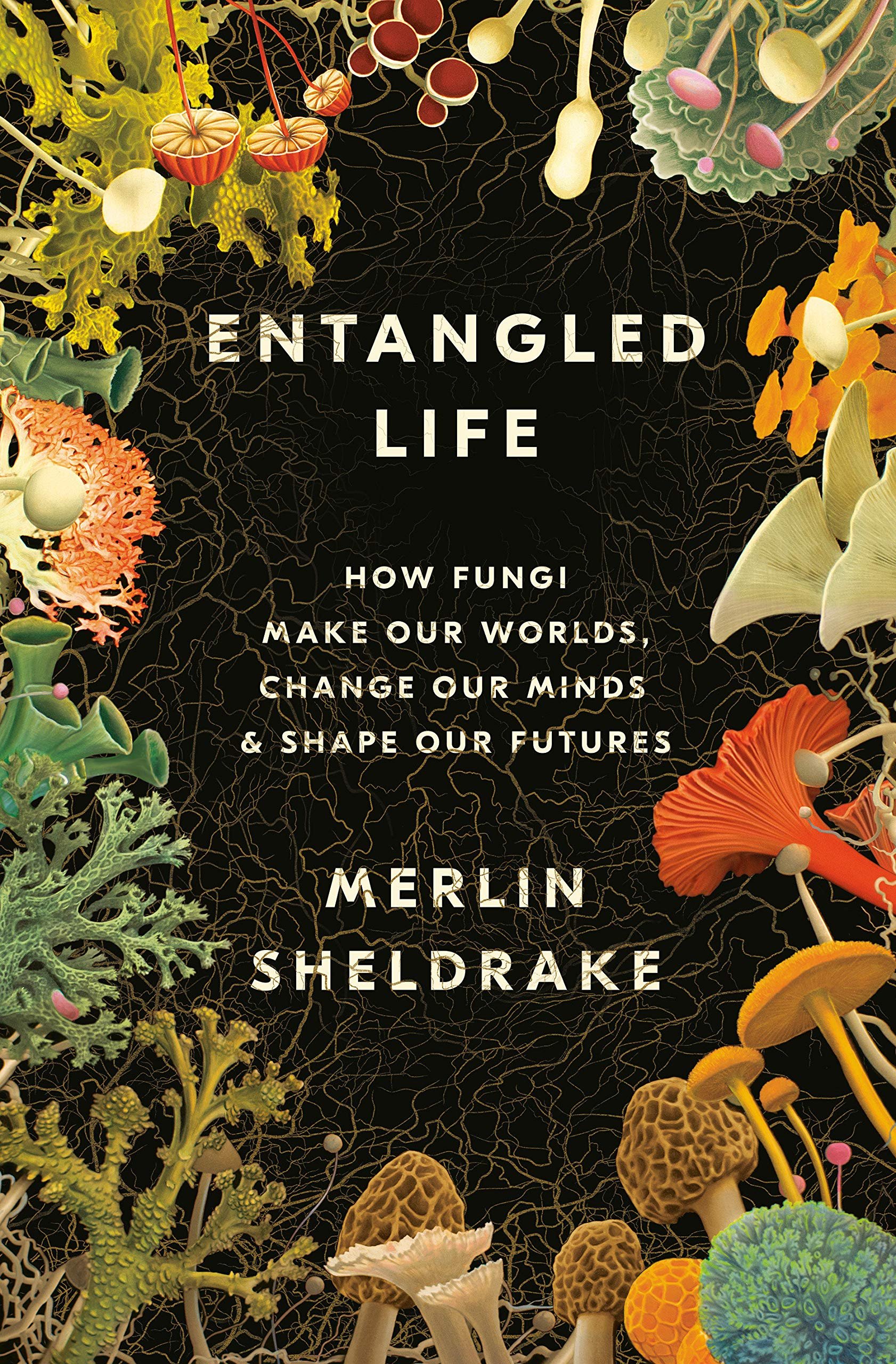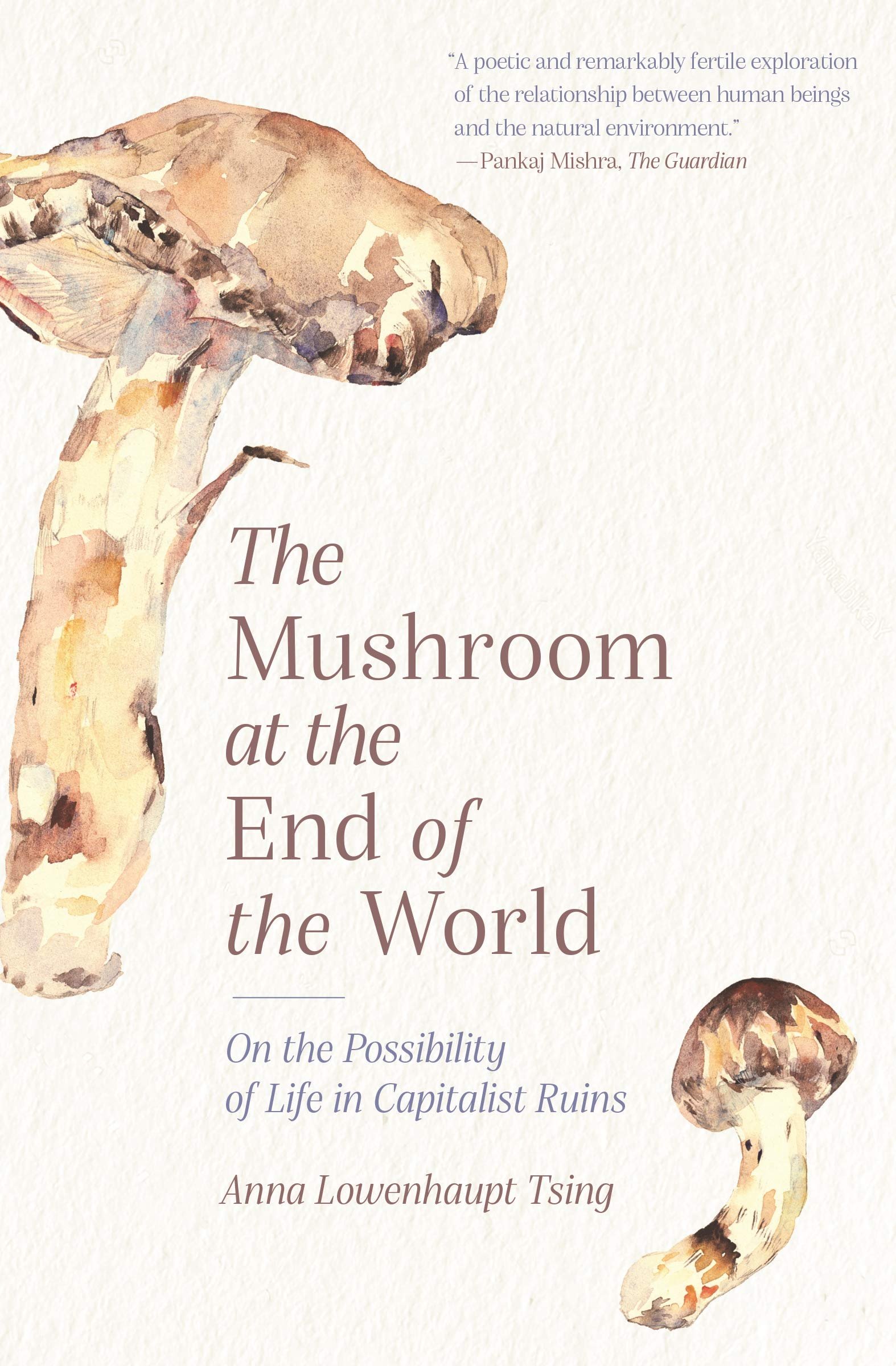Books
Eugenia Bone (ed.)
Fantastic Fungi: Community Cookbook
San Rafael: Insight Editions 2021
insighteditions.com
Toshimitsu Fukiharu
Mushroom Botanical Art
Tokyo: PIE International 2021
pie.co.jp
Peter McCoy
Radical Mycology: A Treatise on Seeing and Working With Fungi
Portland: Chtaeus Press 2016
chthaeus.com
Alison Pouliot
The Allure of Fungi
Clayton, VIC: CSIRO Publishing, 2018
publish.csiro.au
Alison Pouliot, Tom May
Wild Mushrooming. A Guide for Foragers
Clayton, VIC: CSIRO Publishing, 2021
publish.csiro.au
Merlin Sheldrake
Entangled Life. How Fungi Make Our Worlds, Change Our Minds & Shape Our Futures
New York: Randomhouse 2020
randomhousebooks.com
German edition: ullstein-buchverlage.de
Paul Stamets (ed.)
Fantastic Fungi: How Mushrooms Can Heal, Shift Consciousness, and Save the Planet
San Rafael: Insight Editions 2019
insighteditions.com
Paul Stamets
Growing Gourmet and Medicinal Mushrooms
Berkeley: Ten Speed Press 1994
penguinrandomhouse.com
Paul Stamets
Mycelium Running: How Mushrooms Can Help Save the World
Berkeley: Ten Speed Press 2005
penguinrandomhouse.com
Anna Lowenhaupt Tsing
The Mushroom at the End of the World. On the Possibility of Life in Capitalist Ruins
Princeton: Princeton University Press 2015
press.princeton.edu
German edition: matthes-seitz-berlin.de
French edition: editionsladecouverte.fr
Exhibition catalogue
Mushrooms: The Art, Design and Future of Fungi
Beautifully presented 48-page colour catalogue, featuring an introduction from Somerset House director Jonathan Reekie, an essay from curator Francesca Gavin, and images from Beatrix Potter, Seana Gavin, Cy Twombly and other artworks featured in the exhibition.
London: Somerset House 2020
somersethouse.org.uk
Essays
Ilka Becker: Dead or Alive? Agency des Lebendigen ›kritisches Vermögen‹ in Mark Dions Neukom Vivarium, in: Zeitschrift für Ästhetik und Allgemeine Kunstwissenschaft 57/1, special issue: Akteur-Netzwerk-Theorie (2012), eds. Thomas Hensel and Jens Schröter, 103–125.
>> Mediators of Trance. María Sabina – Gordon Wasson – Bruce Conner, in: Mediality on Trial: Testing and Contesting Trance and other Media Techniques, ed. Ehler Voss, Berlin: De Gruyter 2020, 339–369.
>> Pilze und Dekomposition in der künstlerischen Praxis. Zur Heterogenese agentieller Ästhetiken«, in: Die Handlungsmacht ästhetischer Objekte, eds. Annika Schlitte, Markus Verne and Gregor Wedekind, Berlin: De Gruyter 2021, 25–52.
Sarah Kolb: »Eine Form des Wunderbaren, die das Wissen nicht scheut«. Roger Caillois als Grenzgänger zwischen Literatur, Philosophie und Wissenschaft, in: Logik des Imaginären. Diagonale Wissenschaft nach Roger Caillois, Vol. 1: Versuchungen durch Natur, Kultur und Imagination, eds. Anne von der Heiden and Sarah Kolb, Berlin: August Verlag 2018, 25–77.
>> Dizziness as Method. Roger Caillois and the Lure of Material Space, in: Dizziness – A Resource, eds. Ruth Anderwald, Karoline Feyertag and Leonhard Grond, New York, Berlin: Sternberg Press 2019 (Publication Series of the Academy of Fine Arts Vienna, Vol. 24), 138–145, open access.
>> Taumel als Methode. Versuchungen durch die diagonale Wissenschaft, in: Logik des Imaginären. Diagonale Wissenschaft nach Roger Caillois, Vol. 2: Spiel/Raum/Kunst/Theorie, eds. Anne von der Heiden and Sarah Kolb, Berlin: August Verlag, upcoming.
>> Caillois’ geheime Elixiere, co-authored by Anne von der Heiden, in: Roger Caillois, Der Fluss Alpheios, trans. Rainer G. Schmidt, eds. Anne von der Heiden and Sarah Kolb, Berlin: Brinkmann & Bose 2016, 175–186, full text online.
Karin Leonhard: Pictura's Fertile Field. Otto Marseus van Schrieck and the Genre of Sottobosco Painting, in: Simiolus 34/2 (2009/2010), 95–118, full text online.
Corrado Nai & Vera Meyer: The Beauty and the Morbid: Fungi as Source of Inspiration in Contemporary Art, in: w/k - Between Science & Art (11/02/2020), full text online.
Anna Tsing: Unruly Edges: Mushrooms as Companion Species, in: Environmental Humanities 1 (2012), 141–154, open access.
Projects
Chthaeus Press | Independent Fungi-Focused Publishing
Chthaeus Pres is are a small independent publishing house with a focus on all topics related to the science and art of mycology. It believes the many benefits of studying fungal ecology and applying mycology through food and medicine cultivation, pollution remediation, and cultural studies should be available to anyone seeking this rare knowledge.
Fantastic Fungi Marketplace connects mycophiles and makers committed to helping the planet. Its mission is to share the beauty and intelligence of nature – starting with the magic and mystery of mushrooms – to protect the planet and create a better future: By making the invisible visible, cultivating gratitude and slowing down enough to be present and get curious.
Feral Atlas | The More-Than-Human Anthropocene
Playful, political, and insistently attuned to more-than-human histories, Feral Atlas invites you to explore the ecological worlds created when nonhuman entities become tangled up with human infrastructure projects. Stretching conventional notions of maps and mapping, it draws on the relational potential of the digital to offer new ways of apprehending the Anthropocene and demonstrating how transdisciplinary collaboration can cultivate vital forms of recognition and response to the urgent environmental challenges of our times.
Curated and edited by Anna L. Tsing, Jennifer Deger, Alder Keleman Saxena and Feifei Zhou.
Fungi Education provides free learning resources to inspire children to learn and explore all of the wonders of fungi. The Fungi Foundation, Fantastic Fungi and Reconsider have partnered up to create a free mycological curriculum to bring fungi education to children around the world. On this website you will find unique educational resources that deepen our understanding of the interconnected ways in which fungi live and thrive throughout our world – including in our soil, our trees, our air and water, and even inside our bodies.
The Fungi Film Fest (FFF) is the world’s only film festival dedicated to the beauty, weirdness, and human influences of mushrooms, lichens, and micro fungi. Curated by Peter McCoy and Jason Scott.
The Fungi Foundation is a global organization working for the Fungi, their habitats and the people who depend on them. It explores Fungi to increase knowledge of their diversity, promote innovative solutions to contingent problems, educate about their existence and applications, as well as recommending public policy for their conservation.
Fungi Perfecti is a family-owned business dedicated to promoting the cultivation of high quality gourmet and medicinal mushrooms. Founded by Paul Stamets in 1980, it is dedicated to the goal of building bridges between people and fungi. Its mission is to explore, study, preserve, and spread knowledge about the use of fungi for helping people and planet.
Fungotopia is a project by Laura Popplow in cooperation with Tine Tillmann (artist) and Kyra Porada (exhibition designer). As an installation, it shows the different possibilities that mushrooms offer to help to make the world a better place: Mushrooms are open source medicine, food, fertilizer and soil-recovery-method. They can be cultivated quite simply even indoor and are perfect for urban fungiculture. As a community-project fungutopia tries to bring together people for urban fungiculture and share knowledge and experience.
Design project by Pentagram (New York, London, Austin, Berlin) and Counterpoint (FIN). Hypha grows letters (and other things) by simulating mycelium growth found in fungi. Originally shown at the Mushrooms: the Art, Design and Future of Fungi exhibition at Somerset House in London in 2020.
Lucys Rausch | Magazin für psychoaktive Kultur
Magazine for psychoactive culture, edited by Roger Liggenstorfer, founded in 2014. Lucys Rausch is a forum for all topics related to intoxicants, so-called drugs, consciousness and psychonautics. Drug culture is a historical and contemporary reality that cannot be eradicated even by restrictive and punitive laws. Goals of the UN »make the world drug-free« are as unreal as senseless and lead us to realize that illegalized intoxicants are not dealt with objectively, soberly and without prejudice in society.
The MIND Foundation is a European non-profit organizsation that envisions a healthier, more connected world through evidence-based, safe, and legal applications of the psychedelic experience via high-quality psychedelic research.
Mind the Fungi | Art + Science Research Project
Mind the Fungi is dedicated to the research of local mushrooms and current fungal biotechnology, an essential platform technology for innumerable branches of industry which decisively shapes our daily lifes and lifestyles in an invisible way. Mushrooms are used as cell factories to produce antibiotics, immunosuppressants, cholesterol-lowering drugs, antimalarials, insulin, prebiotics, pigments, organic acids, enzymes, polyunsaturated fatty acids, vitamins and more. A project by Art Laboratory Berlin in cooperation with the Institute of Biotechnology TU Berlin (DE).
Mushrooms: The Art, Design and Future of Fungi
Exhibition at the Somerset House in London, 2020. Bringing together the work of over 40 leading artists, designers and musicians, Mushrooms looks at fungi’s colourful cultural legacy, as well as the promise it offers to reimagine our relationship with the planet.
MY-CO Space is a collaborative work of the interdisciplinary ArtSci collective MY-CO X, which was developed in collaborative cooperation with fungi (lat. mycota). It enables an artistic-scientific discussion about a future social significance of fungi for the creation of places and spaces.
The Mycelium Network Society is a collaborative project by Stadtwerkstatt (Linz, A) and CycleX (Andes, NY). Founded in 2017, it addresses fungi, spores, and mycelia as artistically intended alternative information networks.
Mycological Book Club began in April 2020, during the coronavirus pandemic lockdown, as a vehicle for chatting with folks on the internet about mycology and books. Just for fun. It follows the basic book club concept. Each month we read a mycological book and then talk about it on Twitter on the first Tuesday of the month.
The Mycological Twist is a project by Eloïse Bonneviot and Anne de Boer operating both as a fixed mushroom garden and as a nomadic project, infecting and spreading mycelium alike. Since 2019 the garden is located on a balcony in Berlin. The projects initiated by the Mycological Twist can be seen as a place to investigate the cycle of deterioration and regeneration happening in zones of Dark Ecology.
Myco Hacklab (Helsinki, FIN) is a network of people interested in researching, experimenting or developing projects that combine fungi with disciplines such as art, science or technology. It aims at gathering and building their own equipment and infrastructure needed for growing mushrooms.
Project by apparatus @ Heizhaus at Uferstudios, Berlin, 2014 | FFT, Dusseldorf, 2015
Apparatus’ first system built toward a new materialistic theater, inspired by the philosophy of New Materialism. For seven weeks, a group of artists worked amidst the fungus, populated it with art and life and left their traces along the way. Since then, they continue to employ this philosophy in different configurations and settings.
Pilz Welle Lust Art Space in Basel (CH) is an artwork by Juice & Rispetta. It was founded in 2020 and is dedicated to bringing together and questioning artistic and non-artistic disciplines and challenging the human understanding of nature. The art space serves as an artistic tool and meeting point for fruitful collaborations and discussions.
New online project under construction, since 2020.
The site of Republic of Fungi by the artist duo Studer / van den Berg (CH) is dedicated to projects with, about and by fungi. In particular, it serves as a container for artistic ideas on how the realm of fungi and its manyfold achievements can be made accessible to human thinking. From spring 2022 on we will publish links to our own works, but also to found, commissioned or recycled contributions, which we consider suitable to propagate the network of mycetes as an artistically active form of life – not without a grain of salt.
SwissFungi is the national data and information center for the documentation, promotion and research of the Swiss fungal flora. It is part of the Swiss Information Center for Species.










